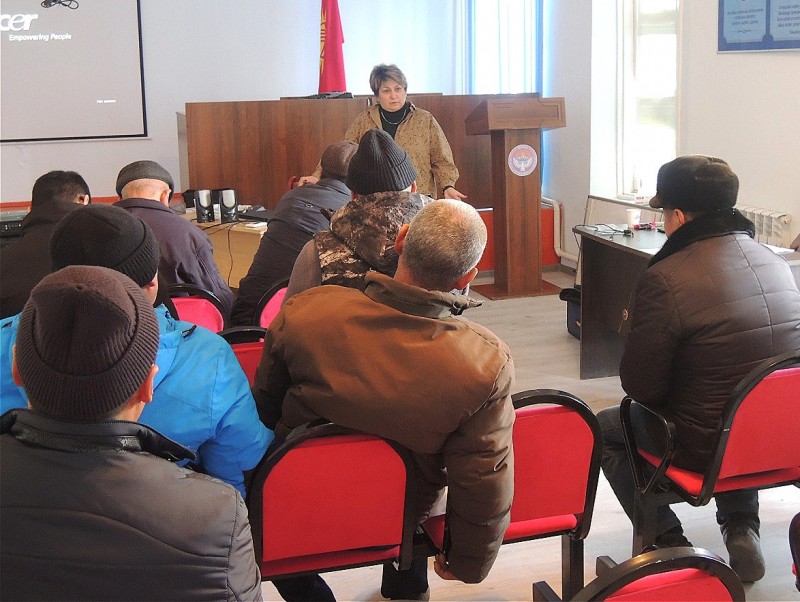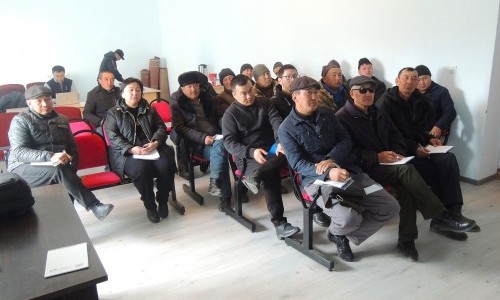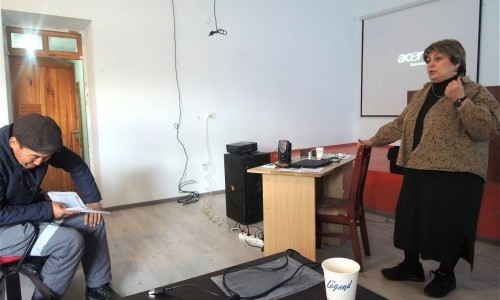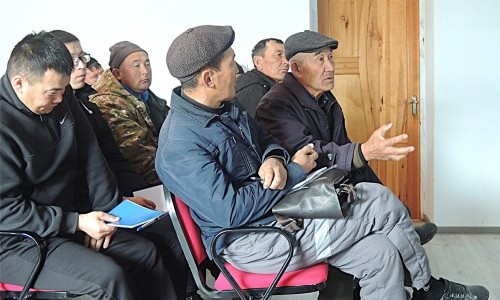
Informing the population about the principles of public monitoring in the mining sector was the central theme of a training held in the village of Kanysh-Kyya, Chatkal District, Jalal-Abad Region. The event was conducted within the framework of the project titled "Improvement of environmental monitoring and reclamation tools in the Kyrgyz Republic," implemented by the CAMP Alatoo PF with the support of UNDP.
Approximately 30 participants attended the training, including representatives of local authorities, the Chatkal Forest and Wildlife Management, village elders, miners, and natural resource users. The program featured expert presentations and practical exercises.
On the first day, Olga Medoeva, trainer and UNDP consultant, focused participants' attention on international and national legislation governing public monitoring in the mining sector. She highlighted the Aarhus Convention as a key international document facilitating citizen engagement in environmental processes. This convention establishes the principles of public access to environmental information, participation in decision-making, and the right to justice.
Key national regulations in Kyrgyzstan's environmental sphere include The Law on Environmental Expertise, The Regulation on Environmental Impact Assessment.
These legal instruments mandate the transparency of environmental project assessments, public hearings, and the consideration of local population opinions. Medoeva emphasized that the right of citizens and public organizations to obtain reliable environmental information is a critical component at both the international and national levels. However, discussions revealed that enforcement of these laws faces numerous challenges. Participants noted the low level of legal awareness among rural residents, which often results in violations of their rights by mining companies.
Moreover, local communities’ opinions are often disregarded during mineral resource development, and information about emerging environmental and social issues rarely reaches central authorities. Participants shared examples from Chatkal District, where many mining companies and individual miners had operated for extended periods with licenses obtained in violation of laws and without involving or informing local residents. These companies conducted activities independently of the communities, and from 2000 to 2010, many ceased operations without land reclamation, leaving behind degraded areas. Additionally, the discharge of wastewater into the Chatkal River emerged as a significant issue.
The second day of the training focused on environmental monitoring during the stages of geological exploration and mining. Participants learned about the necessity of assessing impacts on biodiversity, soil, water resources, and air. Topics covered included: (1) water and soil sampling techniques; (2) monitoring flora and fauna; (3) observing changes in ecosystems.
During discussions, participants emphasized the need for regular educational activities involving representatives from the ayil okmotu (village governments), mining operators, and other stakeholders. They also proposed establishing a dialogue between the population and mining companies and strengthening control over license resales to ensure accountability among mining operators.
At the conclusion of the training, participants expressed gratitude for the provided materials and practical recommendations. They underscored the importance of continuing such educational initiatives in the future.



Итоги пастбищного сезона 2018 года были подведены на очередном заседании районной пастбищной комиссии (РПК).
MoreThe development of the unified method, "Monitoring Pastures at the Local Level," is nearing completion.
MoreЧетыре новых моста построены в 2018 году в Кыргызстане при поддержке ОФ “CAMP Алатоо” и Швейцарской ассоциации “Памирские...
More